- Clone
- 30-H12 (See other available formats)
- Regulatory Status
- RUO
- Other Names
- Thy-1.2
- Isotype
- Rat IgG2b, κ
- Ave. Rating
- Submit a Review
- Product Citations
- publications
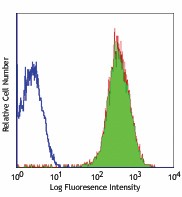
-

C57BL/6 mouse thymocytes stained with 30-H12 Alexa Fluor® 488 -

C57BL/6 mouse frozen thymus section was fixed with 4% paraformaldehyde (PFA) for 10 minutes at room temperature and blocked with 5% FBS for 30 minutes at room temperature. Then the section was stained with 5 µg/ml CD90.2 (clone 30-H12) Alexa Fluor® 488 (green) and CD326 (clone G8.8) Alexa Fluor® 594 (red) overnight at 4°C. Nuclei were counterstained with DAPI (blue). The image was captured by 10X objective.
| Cat # | Size | Price | Save |
|---|---|---|---|
| 105315 | 25 µg | ¥17,980 | |
| 105316 | 100 µg | ¥40,770 |
CD90.2 is a 25-35 kD immunoglobulin superfamily member also known as Thy1.2. It is expressed on hematopoietic stem cells and neurons, all thymocytes, and peripheral T cells in Thy1.2 bearing mouse strains (Balb/c, CBA/J, C3H/He, C57BL/-, DBA, NZB/-). CD90.2 is a glycosylphosphatidylinositol (GPI)-anchored membrane glycoprotein involved in signal transduction. CD90.2 is involved in costimulation of lymphocyte proliferation and induction of hematopoietic stem cells differentiation. CD90.2 has been shown to interact with CD45. The 30-H12 antibody has been reported to induce Ca2+ flux in thymocytes and, in combination with antibody against the CD3/TCR complex, promote thymocyte apoptosis and inhibit CD3-mediated proliferative responses of mature T lymphocytes.
Product DetailsProduct Details
- Verified Reactivity
- Mouse
- Antibody Type
- Monoclonal
- Host Species
- Rat
- Immunogen
- Mouse thymus or spleen
- Formulation
- Phosphate-buffered solution, pH 7.2, containing 0.09% sodium azide.
- Preparation
- The antibody was purified by affinity chromatography and conjugated with Alexa Fluor® 488 under optimal conditions.
- Concentration
- 0.5 mg/ml
- Storage & Handling
- The antibody solution should be stored undiluted between 2°C and 8°C, and protected from prolonged exposure to light. Do not freeze.
- Application
-
FC - Quality tested
IHC-F - Verified - Recommended Usage
-
Each lot of this antibody is quality control tested by immunofluorescent staining with flow cytometric analysis. For flow cytometric staining, the suggested use of this reagent is ≤ 0.25 µg per 106 cells in 100 µl volume. For immunohistochemical staining on frozen tissue sections, a concentration range of 5.0 - 10 µg/ml is suggested. It is recommended that the reagent be titrated for optimal performance for each application.
* Alexa Fluor® 488 has a maximum emission of 519 nm when it is excited at 488 nm.
Alexa Fluor® and Pacific Blue™ are trademarks of Life Technologies Corporation.
View full statement regarding label licenses - Excitation Laser
-
Blue Laser (488 nm)
- Application Notes
-
Additional reported applications (for the relevant formats) include: in vivo and in vitro depletion1,2,7, costimulation of CD3/TCR-mediated signal transduction3,4, and immunohistochemical staining5 of acetone-fixed frozen sections. The 30-H12 antibody does not react with Thy-1.1 alloantigen of the AKR/J and PL strains. To reduce non-specific binding to cells bearing Fc-receptors, pre-incubation of cells with anti-mouse CD16/CD32, clone 93 (Cat. No. 101301 & 101302) is recommended prior to immunofluorescent staining. The Ultra-LEAF™ purified antibody (Endotoxin <0.01 EU/µg, Azide-Free, 0.2 µm filtered) is recommended for functional assays (Cat. Nos. 105351 & 105352).
-
Application References
(PubMed link indicates BioLegend citation) -
- Hathcock KS. 1991. Current Protocols in Immunology. 3.4.1. (Deplete)
- Seaman WE. 1983. J. Immunol. 130:1713. (Deplete)
- Nakashima I, et al. 1991. J. Immunol. 147:1153. (Costim)
- Nakashima I, et al. 1993. J. Immunol. 151:3511. (Costim)
- Ledbetter JA, et al. 1980. J. Exp. Med. 152:280. (IHC)
- Hardy B, et al. 2005. Int. Immunol. 17:615.
- Drobyski W, et al. 1996. Blood 87:5355. (Deplete)
- Dyer KD, et al. 2007. J. Immunol. 179:1693. (FC) PubMed
- Sungur CM, et al. 2013. PNAS. 110:7401. PubMed
- Product Citations
-
- RRID
-
AB_492887 (BioLegend Cat. No. 105315)
AB_492886 (BioLegend Cat. No. 105316)
Antigen Details
- Structure
- Ig superfamily, 25-35 kD
- Distribution
-
Hematopoietic stem cells and neurons, all thymocytes, peripheral T cells of the Thy-1.2 bearing mice
- Function
- Lymphocyte costimulation, proliferation and differentiation of hematopoietic stem cells
- Ligand/Receptor
- CD45
- Cell Type
- Hematopoietic stem and progenitors, Neurons, T cells, Thymocytes
- Biology Area
- Immunology
- Molecular Family
- CD Molecules
- Antigen References
-
1. Barclay A, et al. 1997. The Leukocyte Antigen FactsBook Academic Press.
2. Craig W, et al. 1993. J. Exp. Med. 177:1331.
3. Reif AE and Schlesinger M. 1989. Cell Surface Antigen Thy-1.
4. Mayani H, et al. 1994. Blood 83:2410. - Gene ID
- 21838 View all products for this Gene ID
- UniProt
- View information about CD90.2 on UniProt.org
Related Pages & Pathways
Pages
Related FAQs
Other Formats
View All CD90.2 Reagents Request Custom ConjugationCustomers Also Purchased
Compare Data Across All Formats
This data display is provided for general comparisons between formats.
Your actual data may vary due to variations in samples, target cells, instruments and their settings, staining conditions, and other factors.
If you need assistance with selecting the best format contact our expert technical support team.
-
Biotin anti-mouse CD90.2 (Thy1.2)
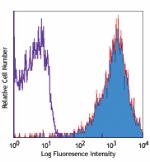
C57BL/6 mouse thymocytes stained with biotinylated 30-H12, f... -
FITC anti-mouse CD90.2 (Thy1.2)
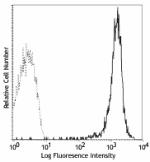
C57BL/6 thymocytes stained with 30-H12 FITC -
PE anti-mouse CD90.2 (Thy1.2)
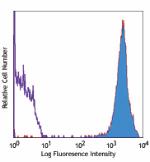
C57BL/6 mouse thymocytes stained with 30-H12 PE -
Purified anti-mouse CD90.2 (Thy1.2)
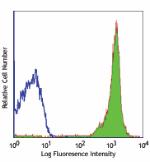
C57BL/6 mouse thymocytes stained with purified 30-H12, follo... -
APC anti-mouse CD90.2 (Thy1.2)
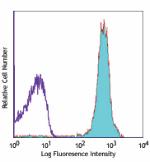
C57BL/6 mouse thymocytes stained with 30-H12 APC -
PE/Cyanine5 anti-mouse CD90.2 (Thy1.2)
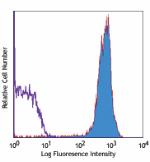
C57BL/6 mouse thymocytes stained with 30-H12 PE/Cyanine5 -
Alexa Fluor® 488 anti-mouse CD90.2 (Thy1.2)
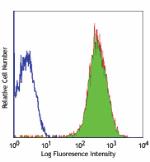
C57BL/6 mouse thymocytes stained with 30-H12 Alexa Fluor® 48... 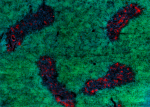
C57BL/6 mouse frozen thymus section was fixed with 4% parafo... -
Alexa Fluor® 647 anti-mouse CD90.2 (Thy1.2)
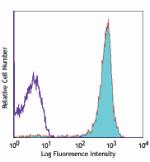
C57BL/6 mouse thymocytes stained with 30-H12 Alexa Fluor® 64... 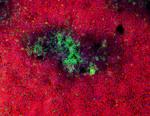
C57BL/6 mouse frozen thymus section was fixed with 4% parafo... -
Alexa Fluor® 700 anti-mouse CD90.2 (Thy1.2)
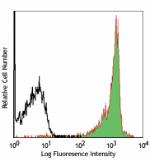
C57BL/6 mouse thymocytes stained with 30-H12 Alexa Fluor® 70... -
PerCP anti-mouse CD90.2 (Thy1.2)
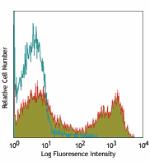
C57BL/6 splenocytes stained with purified 30-H12 PerCP -
Pacific Blue™ anti-mouse CD90.2 (Thy1.2)
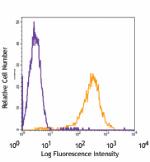
Balb/c mouse thymocytes stained with 30-H12 Pacific Blue™ -
PE/Cyanine7 anti-mouse CD90.2 (Thy1.2)
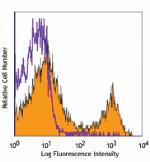
C57BL/6 splenocytes stained with 30-H12 PE/Cyanine7 -
APC/Cyanine7 anti-mouse CD90.2 (Thy1.2)
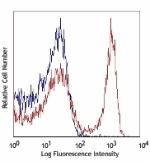
C57BL/6 splenocytes stained with 30-H12 APC/Cyanine7 -
Brilliant Violet 570™ anti-mouse CD90.2 (Thy1.2)
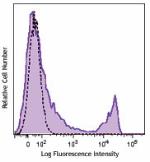
C57BL/6 splenocytes were stained with CD90.2 (clone 30-H12) ... -
Brilliant Violet 785™ anti-mouse CD90.2 (Thy1.2)
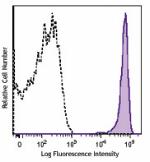
C57BL/6 thymocytes were stained with CD90.2 (clone 30-H12) B... -
Purified anti-mouse CD90.2 (Thy1.2) (Maxpar® Ready)
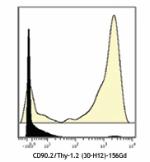
C57BL/6 mouse bone marrow cells stained with 156Gd-anti-CD90... -
Brilliant Violet 510™ anti-mouse CD90.2 (Thy1.2)
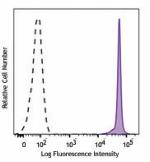
C57BL/6 thymocytes were stained with CD90.2 (clone 30-H12) B... -
PerCP/Cyanine5.5 anti-mouse CD90.2 (Thy1.2)
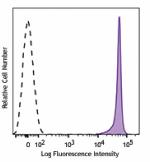
C57BL/6 thymocytes were stained with CD90.2 (clone 30-H12) P... -
Brilliant Violet 605™ anti-mouse CD90.2 (Thy1.2)
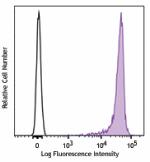
C57BL/6 thymocytes were stained with CD90.2 (clone 30-H12) B... -
PE/Dazzle™ 594 anti-mouse CD90.2 (Thy1.2)
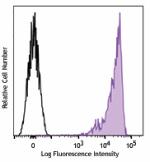
C57BL/6 thymocytes were stained with CD90.2 (clone 30-H12) P... -
Brilliant Violet 421™ anti-mouse CD90.2 (Thy1.2)
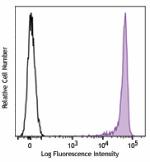
C57BL/6 thymocytes were stained with CD90.2 (clone 30-H12) B... -
TotalSeq™-A0075 anti-mouse CD90.2 (Thy1.2)
-
APC/Fire™ 750 anti-mouse CD90.2 (Thy1.2)
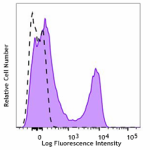
C57BL/6 splenocytes were stained with CD90.2 (clone 30-H12) ... -
Brilliant Violet 711™ anti-mouse CD90.2 (Thy1.2)
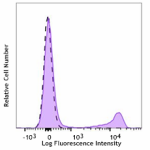
C57BL/6 splenocytes were stained with CD90.2 (clone 30-H12) ... -
Ultra-LEAF™ Purified anti-mouse CD90.2 (Thy1.2)
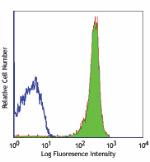
C57BL/6 mouse thymocytes stained with LEAF™ purified 30-H12,... -
TotalSeq™-C0075 anti-mouse CD90.2 (Thy1.2)
-
TotalSeq™-B0075 anti-mouse CD90.2 (Thy1.2)
-
PE/Fire™ 810 anti-mouse CD90.2 (Thy1.2)

C57BL/6 mouse splenocytes were stained with anti-mouse CD3e ... -
Spark Blue™ 574 anti-mouse CD90.2 (Thy1.2) (Flexi-Fluor™)
-
Spark Red™ 718 anti-mouse CD90.2 (Thy1.2) (Flexi-Fluor™)










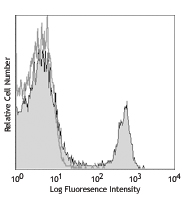
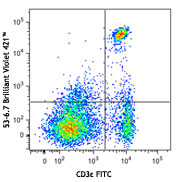
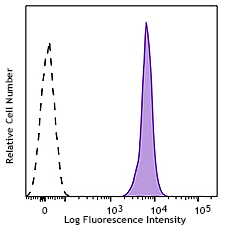
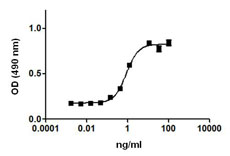



Follow Us